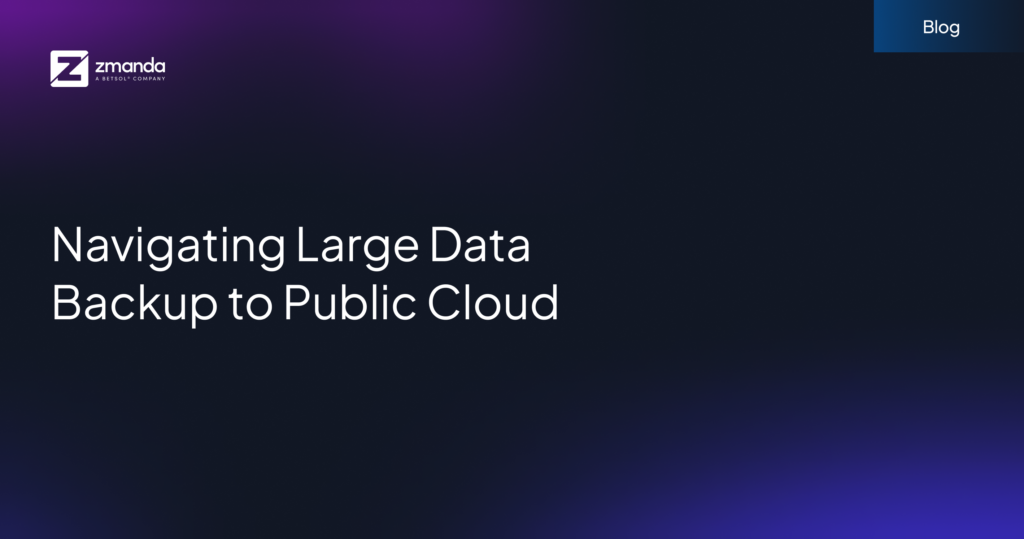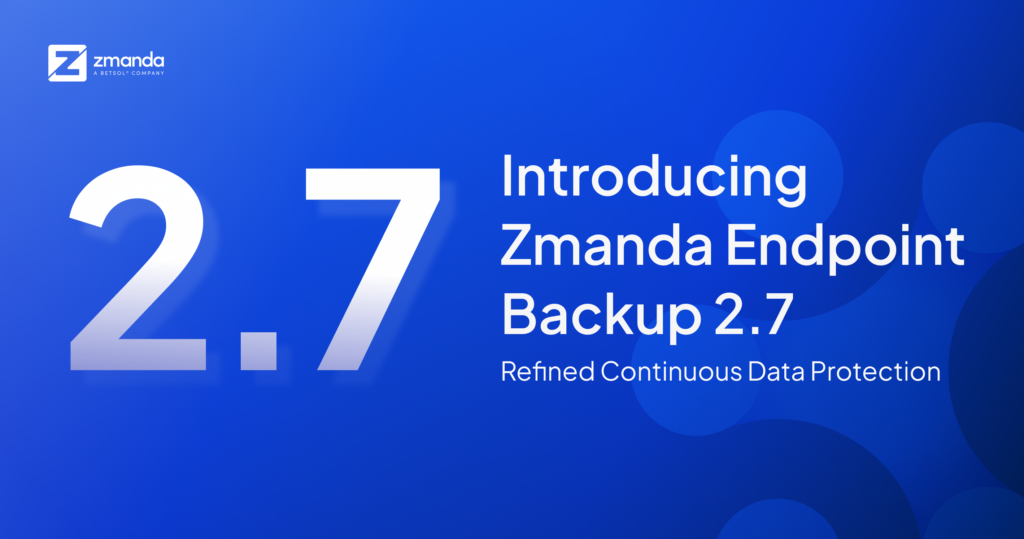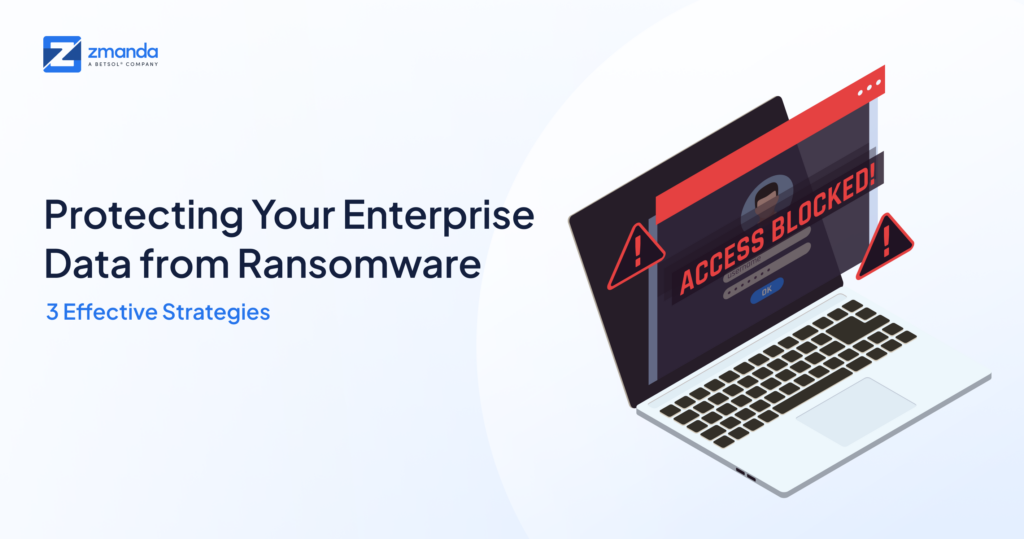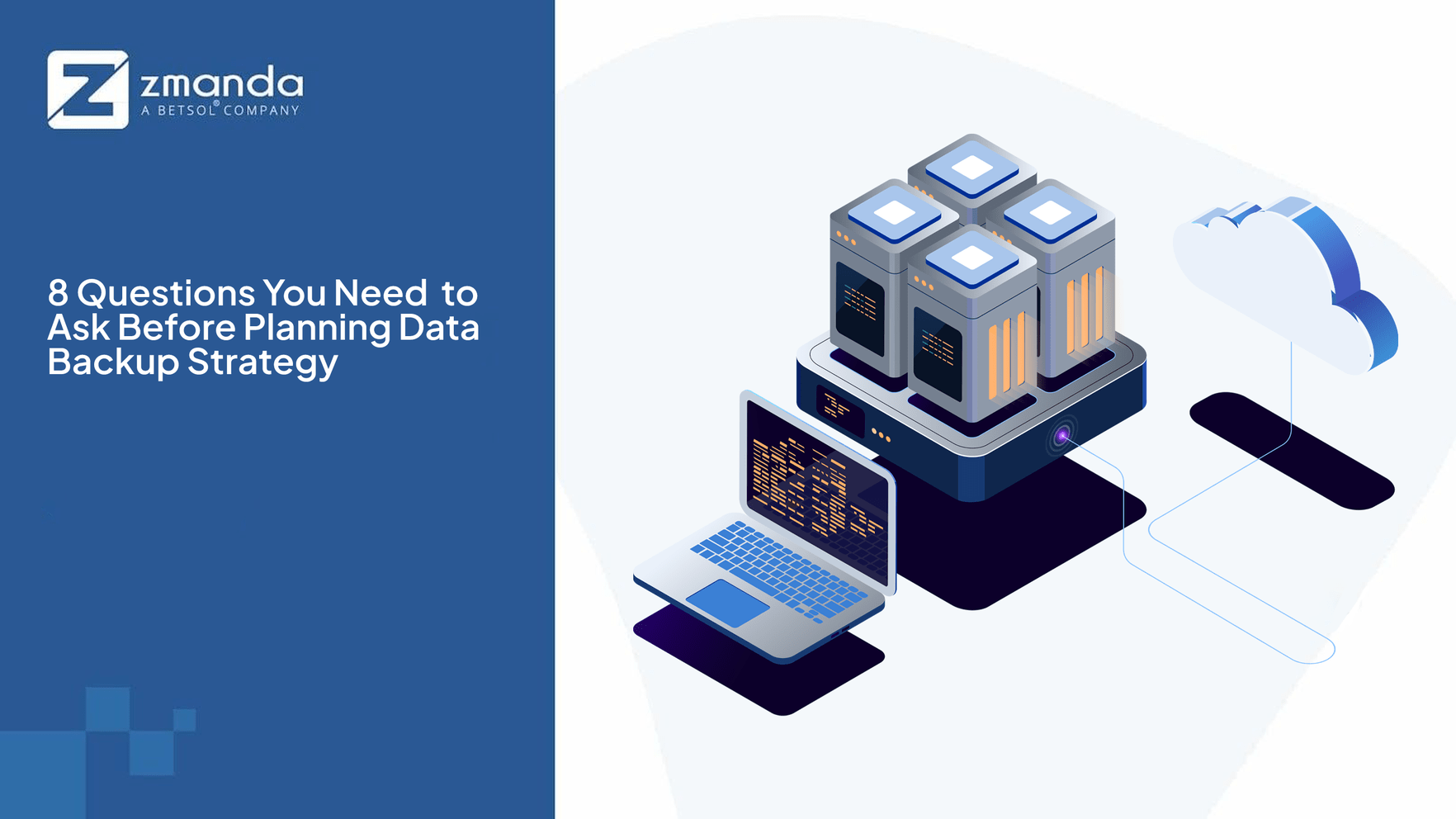
Modern business operations have quite a lot of data flow daily, and any amount of data loss can cause a hindrance to business activities. Data like customer orders, financial transactions, employee databases, client information, and sales orders are vital for any business. And, therefore you need a data backup strategy that can protect, manage, and maintain this data for you.
In case of disasters like floods, fires, ransomware attacks, and whatnot, a reliable backup solution can give you peace of mind.
However, before strategizing the data backup plan, it is essential to know more about data that needs to be backed up. The right questions can help you devise a better data backup strategy for your business.
What Questions to Ask Before Planning Data Backup Strategy?
For the best data backup strategy, you need to plan your questions around your business needs, goals, and requirements. The planning should include the following essential points:
-
Types of data you need to back up
-
Storage capacity
-
RPO and RTO objectives
-
Data backup medium
-
GDPR rules
-
Future proof solution
The below set of questions is designed around these essential backup points.
1. What Is Your Data Backup Goal?
The ultimate goal for all enterprises is to protect, manage and maintain their data. However, the goals may differ depending on the types and sizes of data to be handled. You need to know what data you will need first when a disaster strikes to keep the business up and running again.
There should be knowledge of how much historical data is required to perform business activities on a daily basis. You can only know the right backup goals by learning more about your business data and activities.
2. What All Needs to Be Backed Up?
Once you set the goal, you need to see what needs to be backed up. A number of laptops, desktops, mobile phones, and servers are involved in the business. Do you need to back up all the devices?
Also, does the data from CRMs, databases, financial files, and VMS need backup regularly? You need to know the answers to all these questions about business data while preparing a data backup strategy.
3. When Will You Schedule the Backups?
The frequency of taking backups depends on your RPO (Recovery Point Objective). It depends on how much data a business can afford to lose when a disaster strikes. For some organizations, it can be one day; and for others, it can be a few seconds. You can have different schedules for different types of data depending on their importance in business flow.
Also, there should be an automatic trigger to start the backup at a scheduled time. If you rely on manual triggers, it can be missed; thus, you won’t have backup ready on time. Frequency and triggers play a crucial role while backing up data.
4. Where Will You Store the Backup?
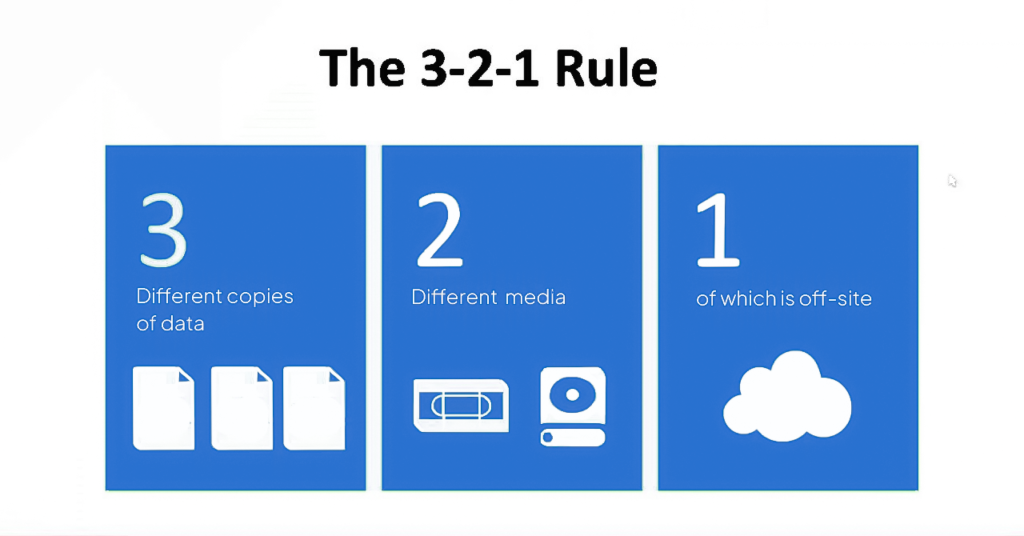
You cannot just have a backup saved on the premises. There should be a 3-2-1 backup plan to store the backup onsite as well as offsite. You can back up the data on the hard drive or tape to access it onsite and on the cloud for remote access.
In this case, your data will be safe and accessible when a disaster strikes. It is essential to strategize data backup storage while planning a backup solution.
5. What About Data Recovery Time?
A data backup strategy should involve recovery time as well. A crashed hard drive usually doesn’t affect the data recovery time; if you have another computer system in the office, you can retrieve the backup data using it.
However, during an event of a natural disaster such as a fire or flood, you will need new hardware. Consequently, you will have to reinstall applications, software, updates, and data from scratch.
Consider having a robust backup and recovery solution ready to handle such events, as it will significantly reduce the data recovery time. You also have an option to partner with an outsourced managed IT solutions provider that can create a customized data backup recovery strategy that will suit your needs.
6. Will Data Backup Strategy Provide Business Continuity?
Well, this question is indirectly related to data recovery time. The lesser the recovery time, the better is business continuity. If you recover systems in seconds after the disaster, your business continuity will be in place.
However, if it takes hours and days to recover, the downtime will cost your business a fortune. You need a data backup strategy that can handle business continuity with ease.
7. Are You Subject to Any Regulatory Requirements?
If your business is subject to compliance rules, there might be limitations to your data backup options. For instance, there might be limitations on offsite backups, or you may also need to ensure a certain level of security for saved backups. If you reside in the EU or have a client base there, you might be well aware of GDPR.
It is a nightmare to go through all the work of developing a backup strategy just to discover you have left yourself open to a regulatory fine. Therefore, you must choose a data backup solution provider who is well-versed with all regulatory compliances.
8. Is the Solution Future-Proof?
Your data backup solution should not only be ready for today but also for tomorrow. The continuously evolving technology and business model need a backup strategy that can tackle the ever-changing environment.
Does your backup strategy support and manage hybrid storage? Is there an option for native-cloud integration? Is it easy to use with other technologies when needed? All these questions need to be addressed before you plan a data backup strategy for your business.
Get Answers to All Your Backup Questions With Zmanda
Is your current data backup strategy answering all the above questions? If not, you need a change. You can opt for an enterprise backup solution that can help you address all your questions. Some tips can come in handy when you are choosing data backup and recovery software.
Zmanda can help you with a customized data backup strategy, as a one-size-fits-all solution is impossible when managing enterprise data. With Zmanda, you can have a 3-2-1 backup plan and a future-ready solution because it supports hybrid cloud environments. You can also set your RPO and RTO objectives to yield business continuity in case of disasters.
So, let’s get started with a free trial and strategize your data backup efficiently. If you have any questions regarding the backup solution, you can also get in touch with Zmanda’s customer support team.
